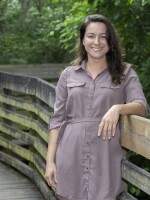Florida agriculture officials have denied a company's registration application to use a known neurotoxin on the state's citrus groves.
The pesticide aldicarb has been banned in about 125 countries but was approved in January by the U.S. Environmental Protection Agency to be used on up to 100,000 acres of oranges and grapefruits for three years. That's as Florida's citrus industry continues to battle the Asian citrus psyllid, an insect spreading the devastating greening disease.
Click here to read more about aldicarb
"The science is clear: there is simply no way aldicarb can be used without putting small children, farmworkers or imperiled wildlife at risk," said Nathan Donley, a senior scientist at the Center for Biological Diversity.
"Even extremely low doses in water or on food can have dangerous impacts on brain development in young children. In a state fully dependent on its groundwater, the last thing Floridians need is chemical like aldicarb that is known to readily leach through soils into drinking water supplies and persist for years."
The Center for Biological Diversity, Farmworker Association of Florida, and Environmental Working Group filed a lawsuit, challenging the federal approval. In its filing to the U.S. Court of Appeals for the D.C. Circuit, the EPA said “it did not make an Endangered Species Act (ESA) effects determination prior to conditionally approving the use of aldicarb on oranges and grapefruit in Florida.”
Therefore, the Florida Department of Agriculture and Consumer Services said in a release, the state application by AgLogic Chemical LLC does not meet the requirements of current state and federal law.
Pesticides must be registered with the state through FDACS, and require approval by the department for use in Florida, according to the release.
“While there are promising new horizons for fighting citrus greening, like recent breakthroughs at UF/IFAS on genetic resistance, aldicarb poses an unacceptable risk to human, animal, and environmental health in Florida, is one of the world’s most toxic pesticides, and is banned in more than 100 countries,” said Florida Agriculture Commissioner Nikki Fried in the press release.
“The registrant’s application does not meet the requirements of state law, and we must therefore deny the registration of aldicarb for use in the State of Florida. I look forward to working with our citrus growers, the EPA, and all partners to continue supporting Florida citrus in an environmentally conscious way.”
AgLogic Chemical LLC can request an administrative hearing to challenge the Department of Agriculture’s decision.
Copyright 2021 WUSF Public Media - WUSF 89.7


